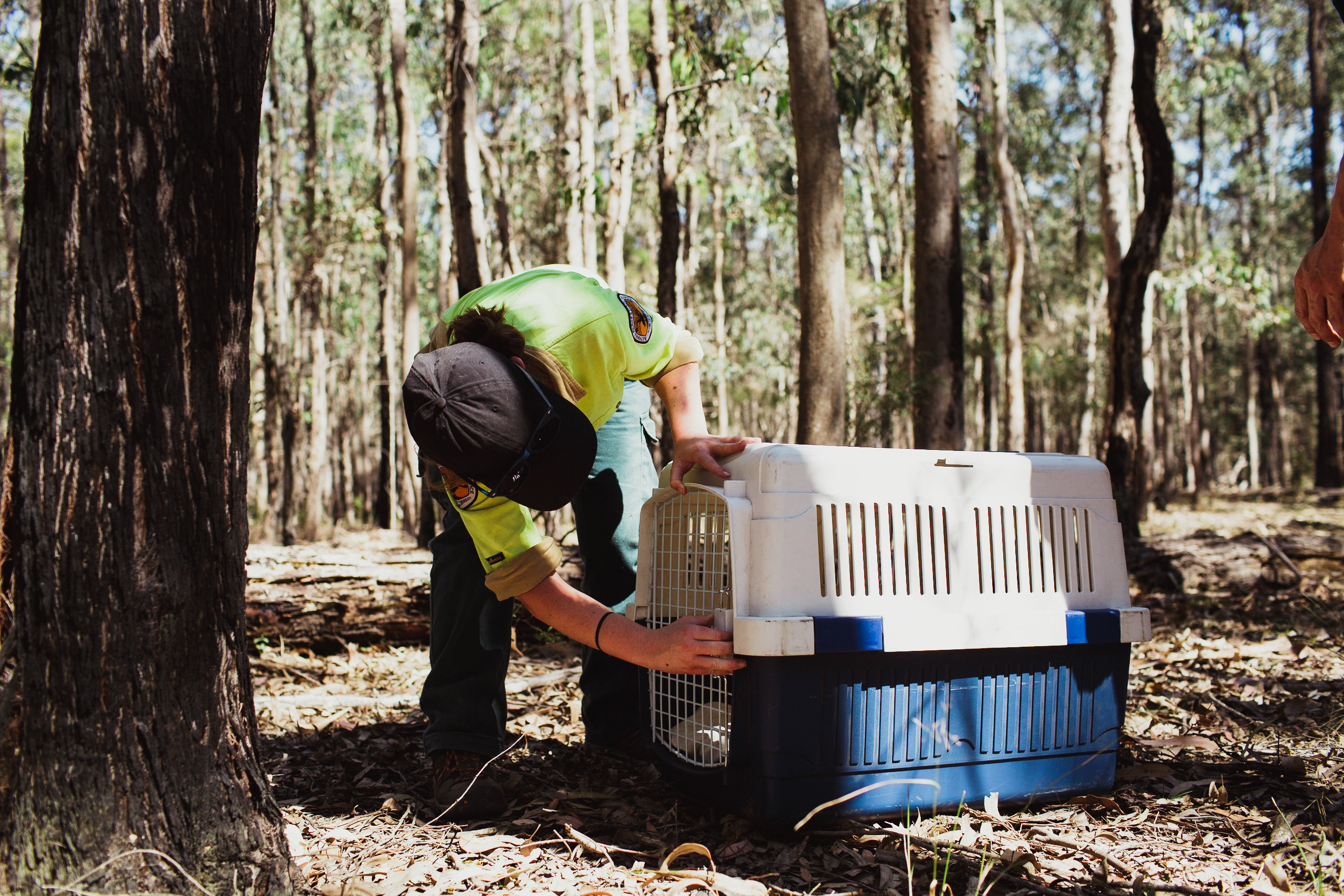Under the NSW Koala Strategy, $23.2 million is being invested over 5 years to remove threats, improve koala health and rehabilitation, and establish a translocation program.
Koalas face various threats, including habitat loss and fragmentation, vehicle strikes, disease, dog attacks, fires, drought, and heatwaves. Improvements to the health and safety of koalas are required to better protect them from the impact of these threats.
Key investments and 2026 targets include:
- $9.1 million to initiate up to 8 translocation programs
- $10.6 million to address at least 10 vehicle strike hotspots
- $3.5 million to provide wildlife care training for more than 500 vets.
Translocations
The NSW Government is investing $9.1 million to facilitate the policy and regulatory pathways to support scientific developments to improve the health and viability of koala populations, including koala chlamydia vaccine trials, captive breeding of koalas and translocation.
Up to 8 translocation programs will be initiated to re-establish koalas in unoccupied habitat, improve koala genetic diversity, and increase the viability of koala populations.
Translocations will be considered on a case-by-case basis with careful planning and risk assessment. Success will be influenced by program design, monitoring and adaptive management. Translocations will be undertaken in consultation with local Aboriginal groups.
Vehicle strike
The NSW Government is investing $10.6 million to identify and take action at 10 or more vehicle strike hotspots across the state.
This action aims to reduce koala injury and mortality and improve the viability of koala populations, and will include measures to encourage drivers to slow down, and fencing and underpasses to keep koalas and other native wildlife off roads.
Wildlife care training and standards
The NSW Government is investing $3.5 million to support the wildlife rehabilitation sector, vets, and vet nurses, and to improve outcomes for sick and injured koalas.
Taronga Zoo will continue to be supported to deliver professional training in wildlife treatment for veterinary professionals, with a goal of providing wildlife care training to more than 500 vets and vet nurses.
The strategy is establishing a new program to improve response actions for koalas and other wildlife during emergencies, and will include implementing protocols, frameworks, training, and other mechanisms for emergency operational decision making.
The NSW Government is also collaborating with the volunteer wildlife rehabilitation sector to continually improve standards in the rescue and rehabilitation of koalas. This will lead to better animal welfare and release outcomes for injured, sick and orphaned koalas that require care.
Full information on actions and targets under Pillar 3 is provided in the NSW Koala Strategy.

